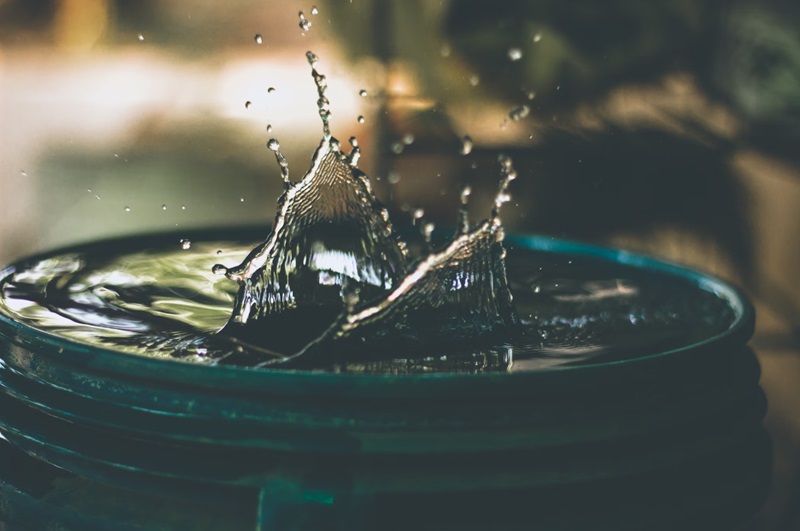
For decades, victims of the contaminated water at Camp Lejeune fought for their right to justice.
Years of illnesses, lost loved ones, and frustrating legal barriers seemed insurmountable. But the Camp Lejeune Justice Act of 2022 changed everything. Now, if you or your family member were exposed to the toxic water at Camp Lejeune, you may be eligible for the compensation.
But these aren’t your typical toxic exposure lawsuits. So, how exactly do Camp Lejeune settlements differ? Let’s dive into the key distinctions that could make all the difference to your claim and the compensation you deserve.

Key Differences And Why They Matter
1. Expanded Eligibility
Years and years gone by, many people exposed to contaminated water at Camp Lejeune were left without any remedies. Traditional toxic exposure lawsuits often need a specific diagnosis. For example, certain types of cancer.
But the Camp Lejeune Justice Act allows a much broader group of people to seek compensation. This includes veterans and their spouses and children. It covers employees of contractors, vendors, or anyone who worked on the base for at least 30 days between 1953 and 1987.
The range of illnesses considered has also widened. The full list of qualifying conditions is still evolving. It includes serious diseases. Examples are kidney cancer, liver cancer, Parkinson’s, and various leukemia. It also includes birth defects etc.
Thousands of people got devastating illnesses. They had no way to legally hold the government accountable. This expansion of eligibility means people who never met the strict requirements of past lawsuits. Now, they have a chance to fight for the compensation they deserve.
Court rulings and legal battles over the coming months and years may set new precedents for how certain illnesses could be linked to higher payouts. This evolving landscape is something to keep an eye on, as it could impact your potential Camp Lejeune settlement amounts.
Statute Of Limitations
In most personal injury lawsuits, there is a strict time limit under which you must file your claim – this is called the statute of limitations. If you miss that deadline, your case is almost dead in the water. However, the Camp Lejeune Justice Act outstretched the statute of limitation. It allowed victims of contaminated water two extra years to sue.
This means that even if your exposure happened in the 1950s or 1980s, you can still file a claim today.
Government As Defendant
When it comes to most toxic exposure cases, the fight is typically against a private company or corporation. But with Camp Lejeune, the defendant is the United States government itself. This changes the lawsuit a lot. It greatly impacts anyone seeking compensation.
Suing the government isn’t like suing a business. Some specialized laws and procedures come into play. For example, sovereign immunity protects the government from some lawsuits. It can also complicate the process. Your legal team will need deep experience in handling cases where the federal government is the opposing party.
Relaxed Burden Of Proof
In most toxic exposure lawsuits, you have to prove a clear link. It must be between your illness and a chemical found at the site. This is incredibly difficult. Science often struggles to pinpoint the exact cause of diseases, especially years after the fact.
But the Camp Lejeune Justice Act acknowledges this provocation. It does not require ironclad proof of causation. Instead, the law uses a standard called “equipoise.” You may only need to show that you lived or worked at Camp Lejeune for at least 30 days during the contamination period. You have a qualifying illness, scientifically linked to the Camp Lejeune water contamination.
If you meet those criteria, the law may then place the burden on the government to prove your illness was caused by the exposure.
No Class Action Option
This is unlike other environmental disaster cases. In those, only a few people are victims in class-action lawsuits. But, Camp Lejeune settlements are handled one by one. This has significant pros and cons for anyone considering filing a claim.
In individual lawsuits, there’s no guarantee. But, a strong case could get a larger settlement. This may be especially relevant to you. You suffered from a very severe illness or multiple health problems linked to the contamination. Potential Impacts on Settlement Amounts
Potential Impacts On Settlement Amounts
One of the biggest questions on everyone’s minds is, “How much can I expect from a Camp Lejeune settlement?”
Unfortunately, there’s no simple answer. According to TorHoerman Law, the Congressional Budget Office anticipates the payouts could reach up to $6.1 billion. The claim payouts will be determined in the administrative claims period. Other payments will be distributed following litigation in the US District Court for the Eastern District of North Carolina.
It is important to remember that every case is unique. Your age, the length of your exposure, and even the specific location where you lived/worked on base could all factor into your settlement.
That said, the Act’s broader eligibility means even those with less severe health problems might still be eligible. They could get a payout of about $50,000 to $100,000.
What Claimants Need To Know
Seeking compensation for damage from Camp Lejeune contamination can be a complex process. You must start collecting evidence. This evidence includes medical records documenting your diagnosis. Also, gather anything that proves you were at Camp Lejeune.
Don’t expect a quick resolution. Building a case, potential negotiations, and the sheer volume of claims means this process will likely take time. Perseverance is crucial. A good attorney will keep you informed on progress, even if updates are sometimes simply, “We’re still waiting.”
For decades, the Camp Lejeune water contamination cast a long shadow, and it seemed like those harmed would never see their day in court. But the Camp Lejeune Justice Act has now brought a genuine pathway for victims and their families to fight back.
If you or someone you love was exposed to the contamination at Camp Lejeune, you’re not alone. Knowledge is power. Understanding the unique aspects of these settlements puts you in a better position to make choices about your legal rights.
And most importantly, don’t lose hope.
Author Profile

-
Hi I am Karan a passionate blogger. It's almost 4.5 years when I started blog writing in 2019. I am the owner of the Readree.com. My dedication to delivering reliable information and useful tips has earned him a loyal following among tech enthusiasts seeking reliable insights and recommendations.
If You have any query then email Us. sabinbaniya2002@gmail.com
Latest entries
 AppsApril 19, 2025Transfer Money from Bajaj EMI Card to Mobikwik Wallet
AppsApril 19, 2025Transfer Money from Bajaj EMI Card to Mobikwik Wallet TECH NEWSApril 15, 2025What is Bike Pink in Rapido?
TECH NEWSApril 15, 2025What is Bike Pink in Rapido? ArticleApril 9, 2025Top 10 Whisky Brands in India Under 5000 – Indian Whisky Brands
ArticleApril 9, 2025Top 10 Whisky Brands in India Under 5000 – Indian Whisky Brands How ToApril 3, 2025How Many Passengers Are Allowed in a Rapido Cab?
How ToApril 3, 2025How Many Passengers Are Allowed in a Rapido Cab?